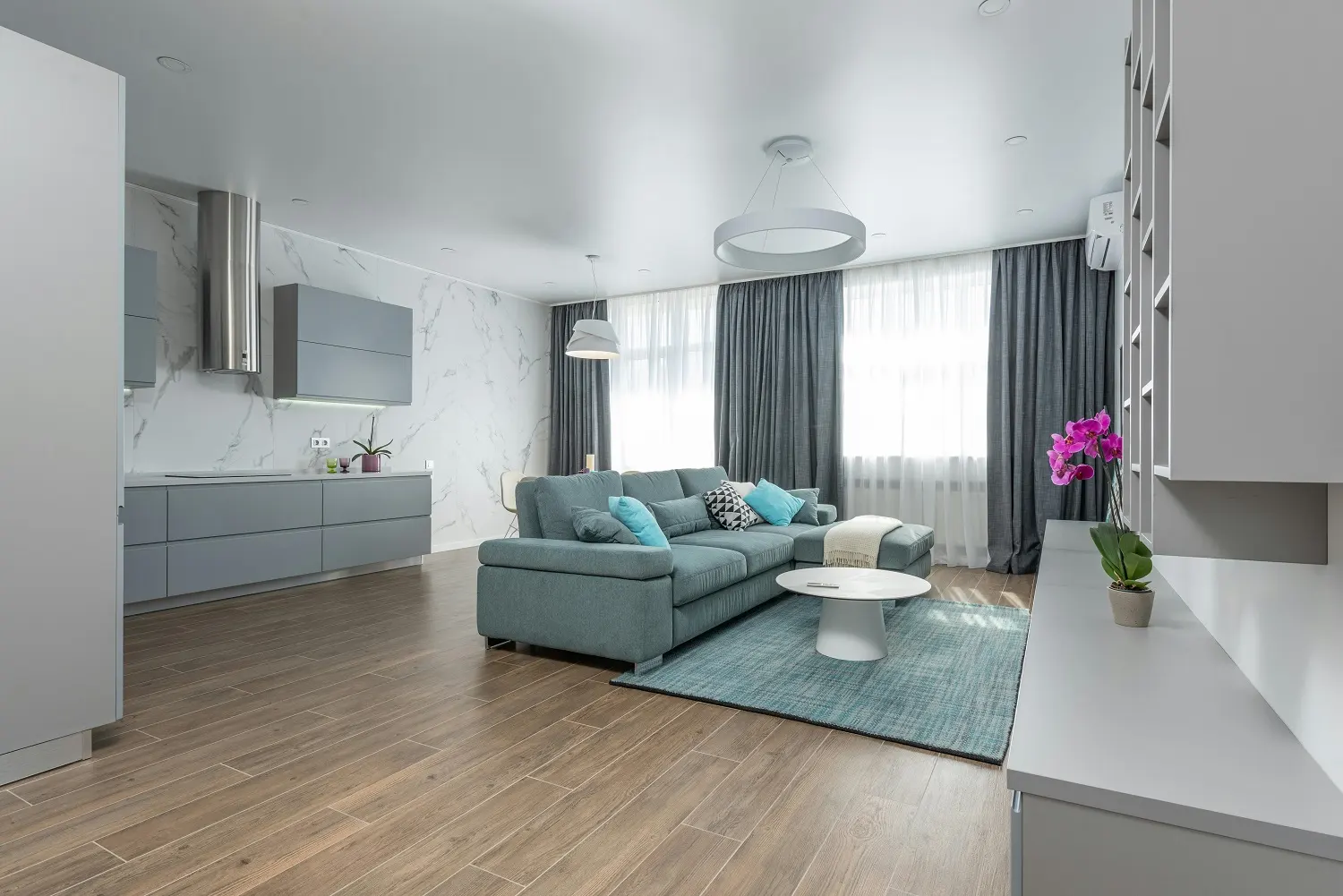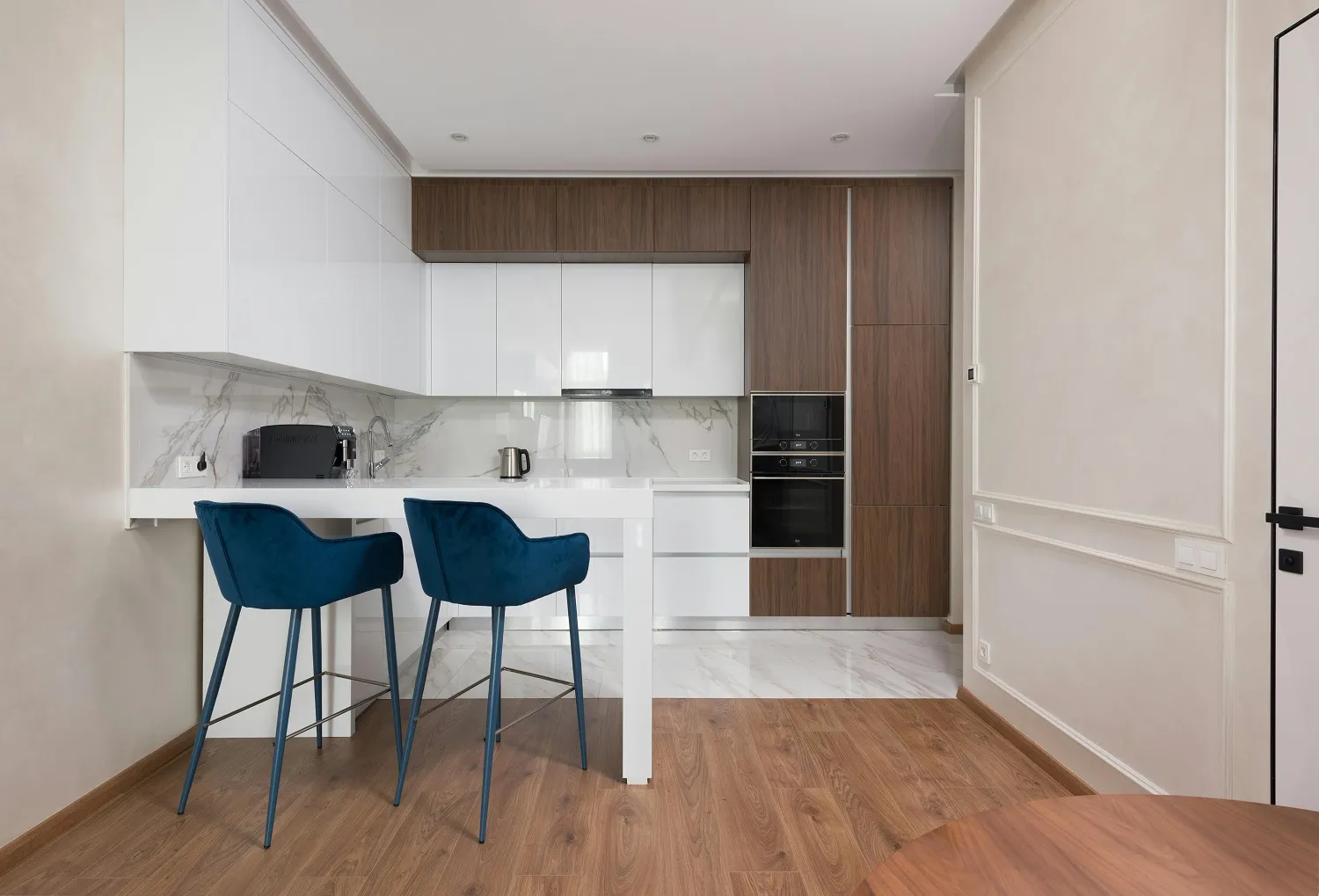Choosing the right flooring for your basement requires understanding moisture challenges unique to below-grade spaces. Unlike upper floors, basements face constant moisture pressure from surrounding soil, high humidity levels, and potential flooding risks. The flooring company helps Chicago homeowners transform damp, underutilized spaces into functional living areas that withstand the region's demanding climate conditions.
The U.S. Census Bureau reports that 53% of single-family homes in the Northeast include full or partial basements, making proper flooring selection critical for protecting this substantial investment. Understanding which materials resist moisture while maintaining comfort and style determines whether your basement renovation succeeds or fails.
Luxury Vinyl Plank: 100% Waterproof Performance
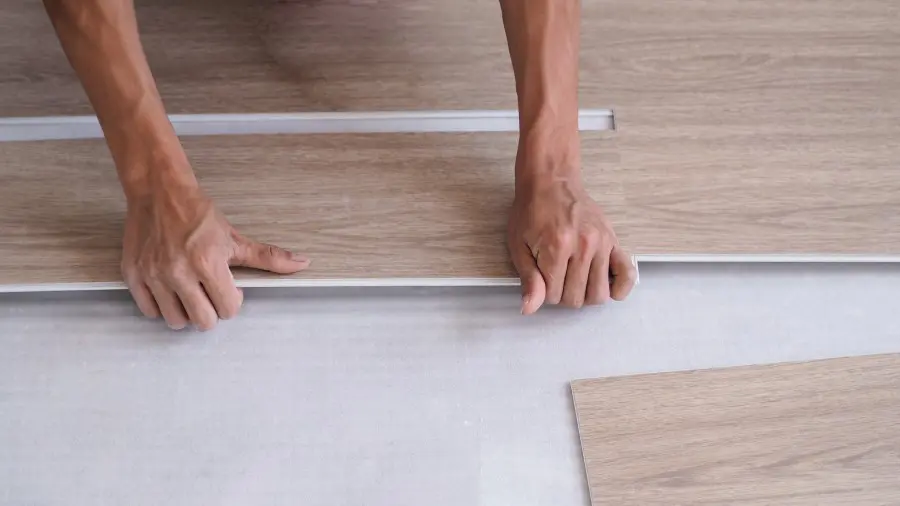
Luxury vinyl plank flooring dominates basement installations with 100% waterproof construction. The U.S. residential flooring market shows vinyl revenue reached $5.65 billion in 2024, driven by rigid core products like Stone Plastic Composite (SPC) and Wood Plastic Composite (WPC), offering superior dimensional stability.
SPC cores resist seam separation during Chicago's humidity swings. Quality products feature 12-40 mil wear layers, with residential installations requiring a minimum 12-20 mil thickness. The rigid core prevents telegraphing of subfloor imperfections common in older Chicago homes.
Best for: Basements including family rooms, playrooms, home theaters, or any basement space where complete moisture protection is necessary.
Ceramic and Porcelain Tile: Ultimate Flood Protection
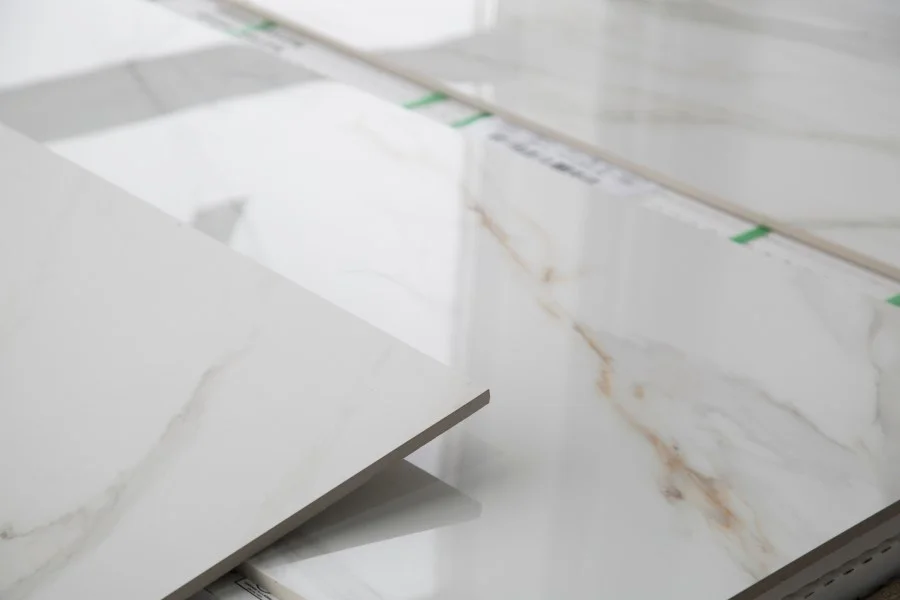
Ceramic and porcelain tile installation provides unmatched flood protection. The American Society for Testing and Materials (ASTM) reports porcelain's water absorption below 0.5%, making it essentially waterproof.
Life Cycle Cost Analysis following ASTM E917 standards proves ceramic and porcelain tiles yield the lowest ownership costs over 75-year periods. This stems from minimal maintenance and eliminated replacement cycles when properly installed. Electric radiant heating systems ($10-20/sq ft) offset cold surfaces while reducing heating costs.
Best for: Laundry rooms, utility areas, workshops, and basements with documented flooding history or areas near sump pumps.
When Engineered Hardwood Works in Basements (And When It Doesn't)
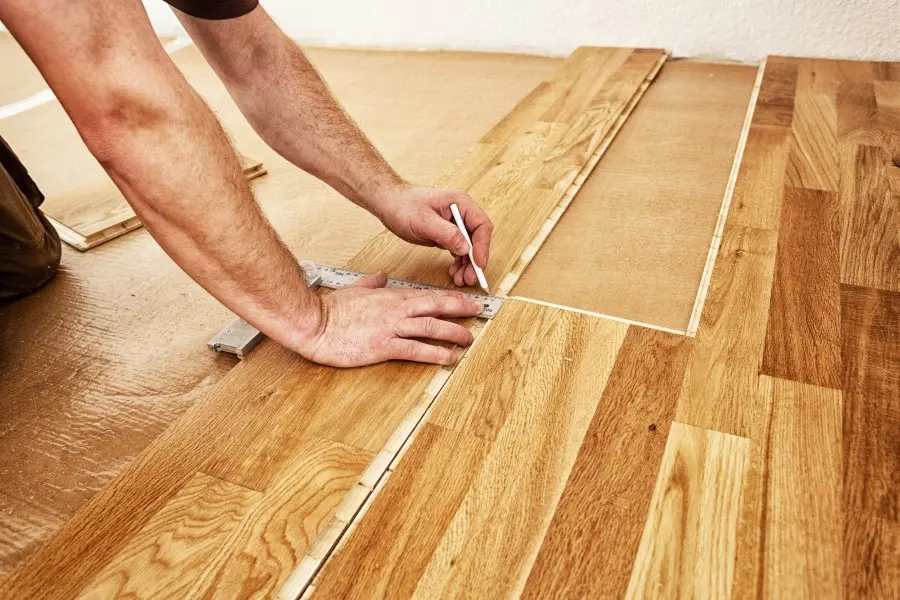
Engineered hardwood flooring offers an authentic wood appearance for controlled moisture basements. Layered construction with hardwood veneer over composite core provides superior dimensional stability versus solid wood, though moisture-hardened products remain essential for below-grade success.
Quality engineered hardwood survives 48-72 hour standing water tests when manufactured for below-grade installations. Brands like Armstrong and Mohawk produce basement-specific products, but professional moisture mitigation and vapor barriers remain mandatory.
Best for: Climate-controlled finished basements in homes with proven dry conditions, no flooding history, and professional vapor barrier systems installed.
Carpet Tiles: Modular Comfort for Dry Basements
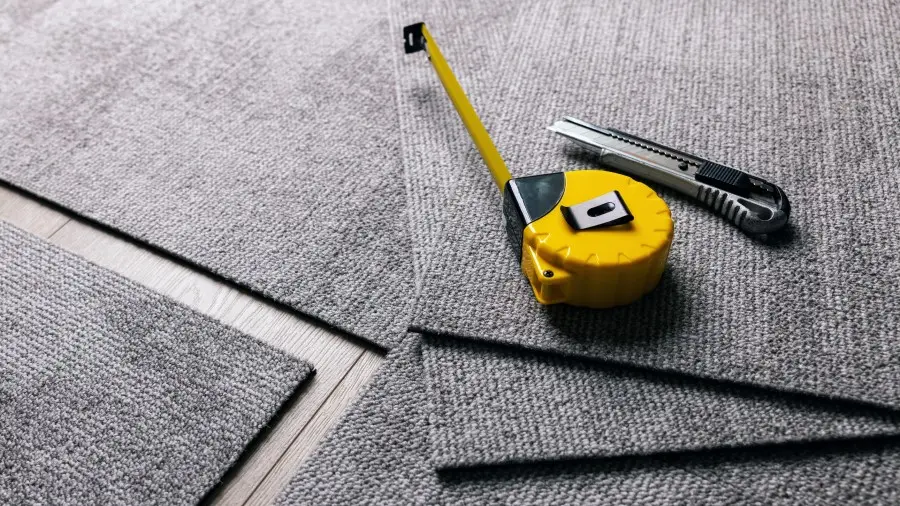
Carpet tile installation creates comfortable living spaces while maintaining practical replacement capabilities. Unlike wall-to-wall carpet which requires complete replacement after water events, modular tiles allow replacing only affected sections.
Modern carpet tiles use moisture-resistant padding and antimicrobial treatments, inhibiting mold growth. However, carpet suits only basements with dehumidifiers, maintaining humidity below 50% and zero flooding history. The EPA guidelines recommend keeping basement humidity below 60% to prevent mold in textile coverings.
Best for: Finished living areas in dry basements, children's playrooms, home offices, and media rooms where comfort outweighs moisture concerns.
Rubber Flooring: Built for Basement Gyms and Workshops
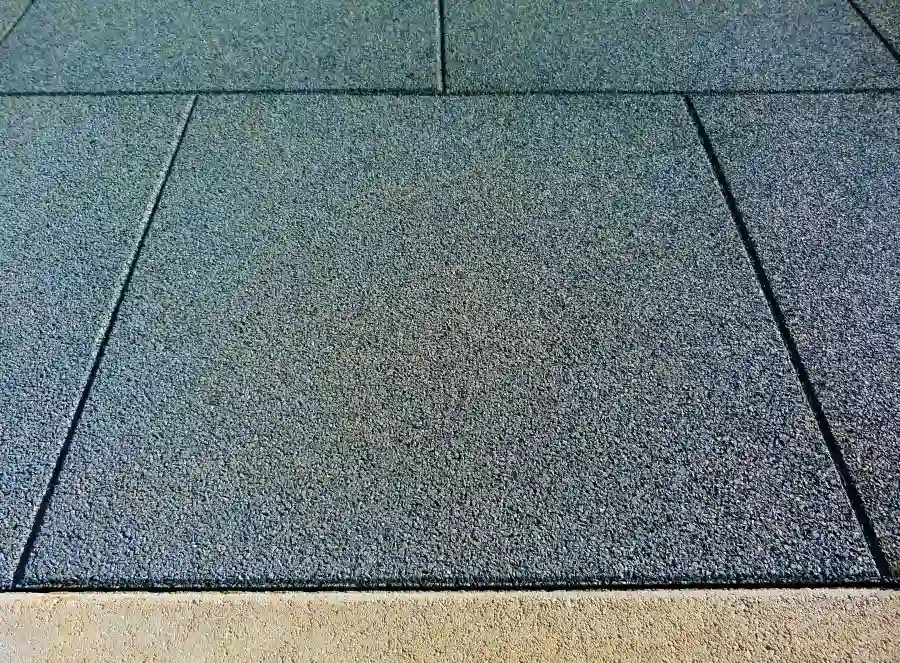
Rubber flooring excels in basement gyms, workshops, and play areas where shock absorption and durability outweigh aesthetics. Available in interlocking tiles or rolled sheets, rubber handles moisture while protecting concrete from heavy equipment impacts.
Thicker rubber (8mm+) provides superior protection against dropped weights and reduces sound transmission. Interlocking tiles simplify future reconfiguration as basement uses evolve.
Best for: Home gyms with free weights, cardio equipment areas, children's playrooms, workshops, and utility spaces prioritizing function over appearance.
Why Professional Testing Comes Before Material Selection
Regardless of material selection, successful basement flooring demands professional assessment and moisture mitigation. Concrete remains inherently porous, and excessive uncontrolled moisture causes the leading flooring failures in concrete slabs.
Critical Testing Standards
The ASTM F-2170 Relative Humidity Test measures internal slab moisture at 40% depth, providing accurate long-term predictions of moisture interaction with flooring systems. This standard surpasses surface-only ASTM F-1869 Moisture Vapor Emission Rate tests for reliability with modern resilient flooring and adhesives.
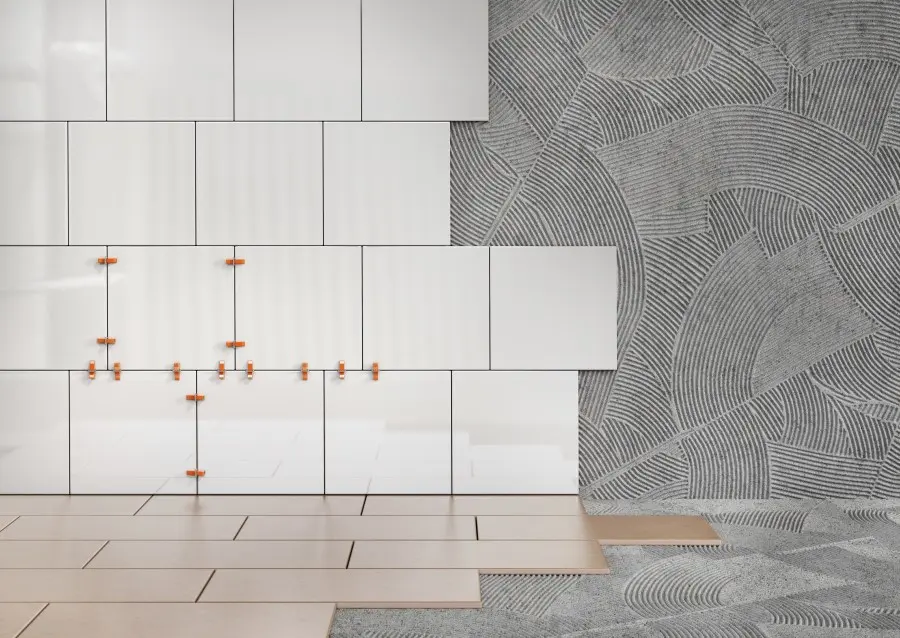
Surface Preparation Protocol
ASTM F710 standard practice requires preparing concrete floors to receive resilient flooring by ensuring smooth, clean, level foundations. Self-leveling compounds correct deviations exceeding 1/4 inch over 10 feet, preventing visible imperfections and premature wear.
Vapor Barrier Integration
Professional vapor barriers serve dual functions, protecting flooring systems from failure while stabilizing thermal envelopes. Research shows heat flux density through wet walls increases 1.5 times compared to dry sections, making moisture control critical for both flooring durability and energy efficiency.
#cta_start
Start with Clarity, Not Guesswork
Every basement is unique. Our experts help you uncover hidden moisture issues and protect your investment for years to come.
Schedule Free Estimate
#cta_end
Which Option Delivers Best Return on Investment?
A clear view of total ownership costs over time reveals the true value beyond the initial purchase price. The analysis compares material costs, installation labor, maintenance needs, and replacement frequency across expected lifespans.
Life Cycle Cost Analysis following ASTM E917 methodology confirms porcelain and ceramic tiles deliver the lowest 75-year ownership costs through eliminated replacement cycles and minimal maintenance requirements. However, luxury vinyl provides optimal balance between initial investment and long-term performance for most Chicago basement applications.
For a complete overview of material choices across your home, explore our Chicago Homeowner’s Flooring Guide.
Match Flooring to Your Moisture Level and Usage
Your basement's moisture conditions and intended use determine the right flooring choice:
- Luxury vinyl plank works for balanced aesthetics with complete waterproof protection, DIY installation over uneven subfloors, comfortable daily-use living spaces, and moderate budgets under $10/sq ft.
- Porcelain or ceramic tile suits documented flooding history, lowest 75-year ownership cost priority, utility areas near sump pumps, radiant heating plans, and maximum home value increase.
- Engineered hardwood matches upper floor aesthetics when professional moisture testing confirms dry conditions, vapor barriers are installed, no flooding occurred in 10+ years, and budget allows $8-15/sq ft.
- Carpet tiles create warm family rooms when dehumidifiers maintain below 50% humidity, zero flooding history exists, easy section replacement matters, and comfort outweighs moisture concerns.
- Rubber flooring builds dedicated gym spaces, provides shock absorption for heavy equipment, serves workshop areas, creates durable play surfaces, and reduces upstairs noise.
Ready to Transform Your Chicago Basement?
Selecting the right basement flooring protects your investment while creating functional living space that serves your family for decades. Simple Flooring brings over 50 years of Chicago flooring experience to every basement project, understanding the unique challenges Illinois' high water table and climate extremes present.
Our certified installers perform ASTM F-2170 moisture testing before every project and help you choose the best materials for your moisture levels, lifestyle, and budget — never products that compromise performance. Contact us today to start your basement transformation with trusted local experts.
.svg)





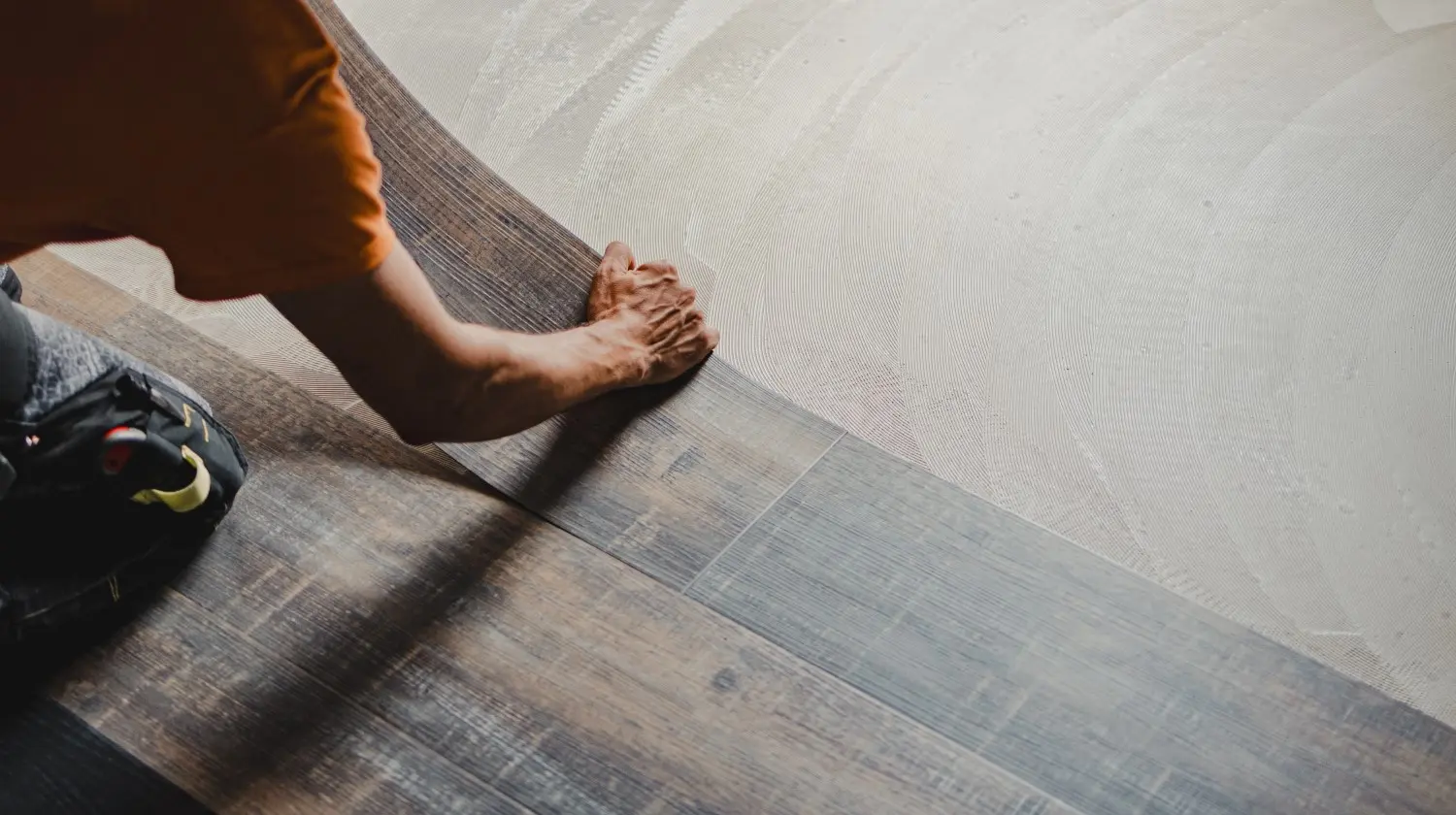
.svg)

